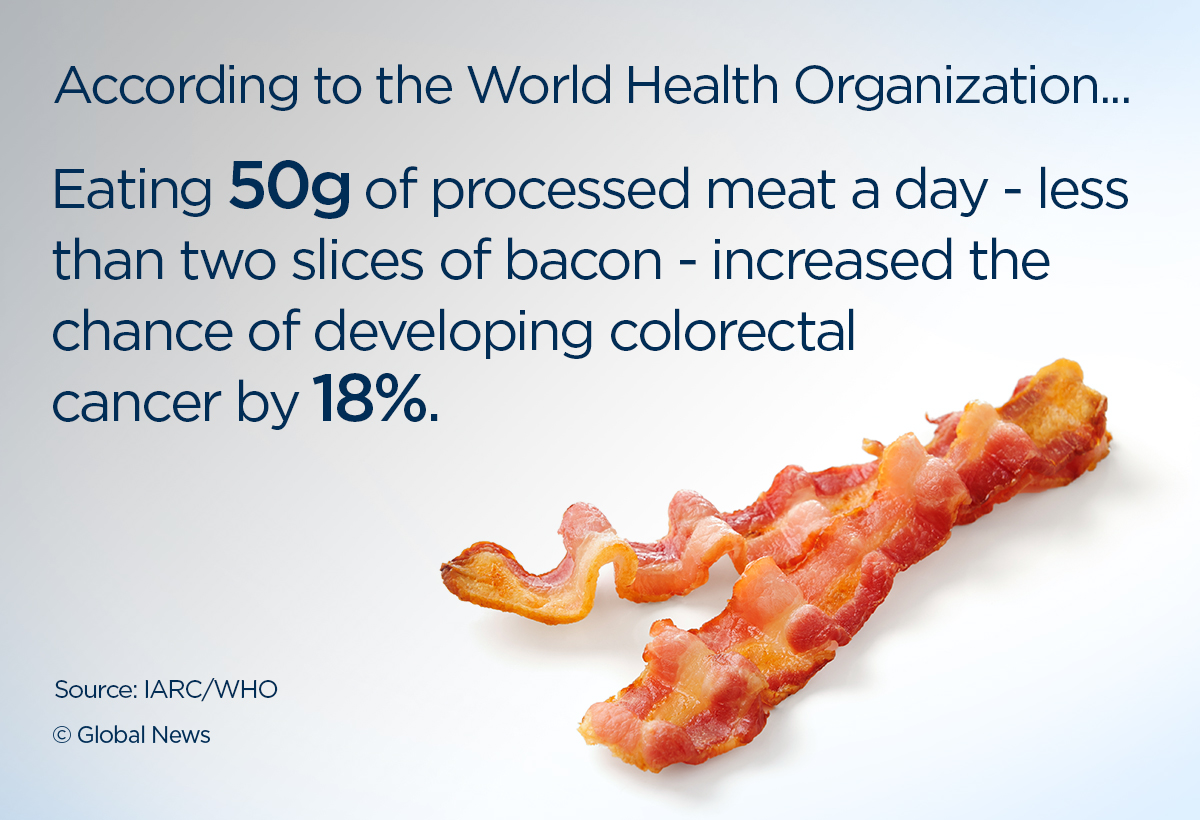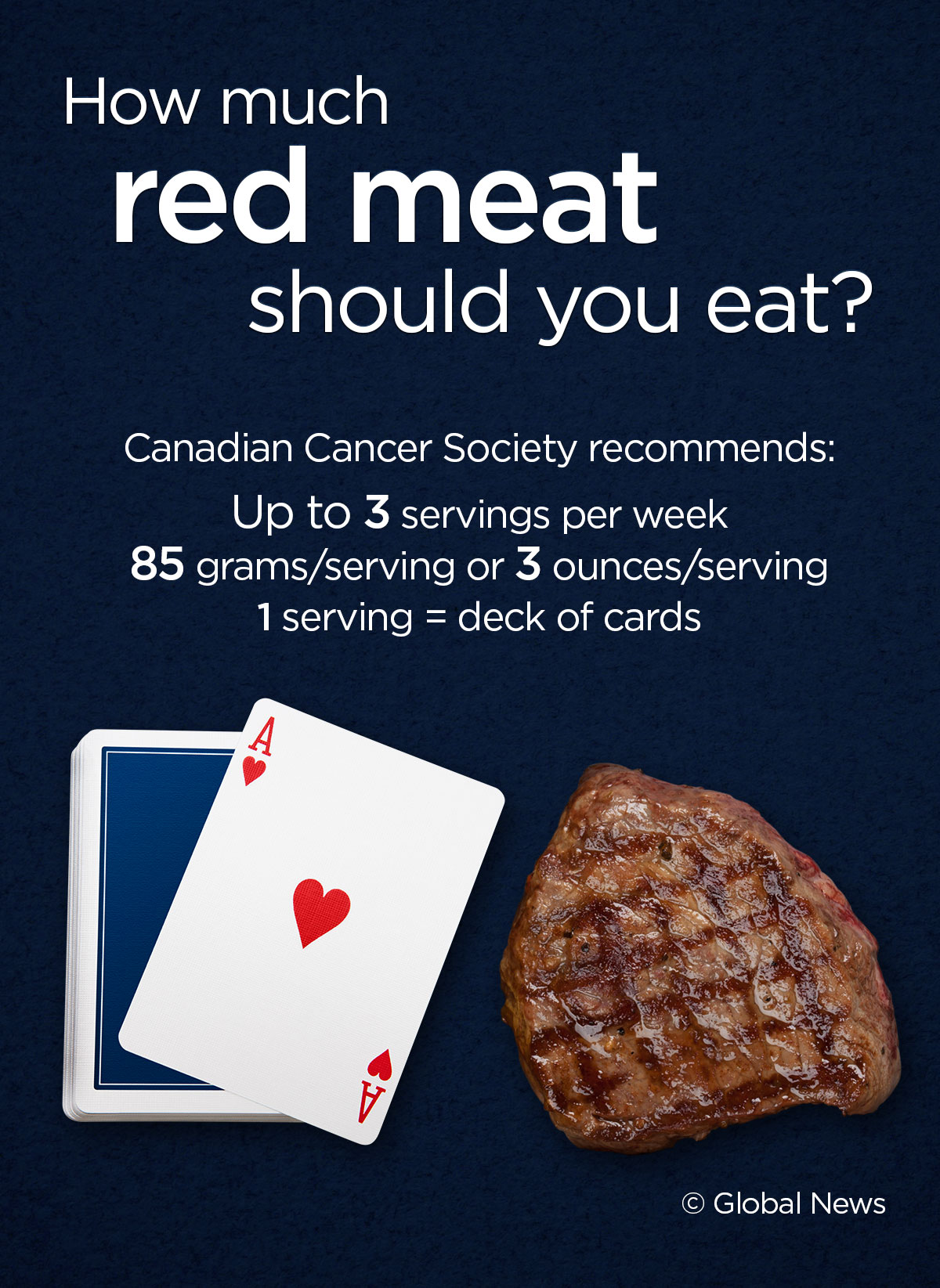Bacon, sausage, deli meats and hot dogs – if processed meats are part of your weekly staple – you are probably eating too much, most likely way too much according to health experts.

The Canadian Cancer Society said when it comes to processed meat, Canadians should, “limit your intake and consider it only for things like special occasions” said Sian Bevan, director of research for the Canadian Cancer Society. “Holidays, birthdays… and at a special sporting events. It’s about not making it a daily choice or a regular choice. ”
This has been the cancer society’s recommendation since 2009 – avoid processed meat.
“You want to reduce your consumption of processed meats, partially because of the risk associated with colon cancer but also because of high sodium,” said Sian.
The World Health Organization’s cancer research division, the International Agency for Research on Cancer (IARC) reported processed meat causes colorectal cancer if eaten in high amounts.
“What the study is showing is the higher intake you have (of processed meat), the more of an increased risk you have of colon cancer,” registered dietitian Cara Rosenbloom told Global News.
How much processed meat should Canadians eat?
- Canadian man dies during Texas Ironman event. His widow wants answers as to why
- ‘Sciatica was gone’: hospital performs robot-assisted spinal surgery in Canadian first
- Canadians more likely to eat food past best-before date. What are the risks?
- Treatment from female doctors leads to lower death rates, study finds
When it comes to processed meats – the message is – eat as little as possible.
“You don’t need any in your diet,” said Rosenbloom. “There is nothing essential in it.”
“The same way you would eat cake once in a while, or ice cream once in a while, have a hot dog once in a while, it’s a treat, it’s not an everyday food,” said Rosenbloom.
Are some processed meats better than others?
Rosenbloom also warns consumers; don’t fall for marketing that a processed meat is natural and therefore different or better for you.
“If it’s salted, cured, smoked, processed meat it is in the study,” said Rosenbloom. “It doesn’t matter if it was ethically raised, organic, nitrate free, it doesn’t matter. If it’s smoked, cured, salted, it’s processed. There is no such thing as naturally processed meat. It’s either processed meat or it’s not.”
Canadian Cancer Society’s Tip to eating less processed meat
- Save processed meat for special occasions, such as ham for a holiday dinner or a hot dog at a sporting event.
- Try a veggie wrap with hummus on whole grain bread for lunch instead of a sandwich with cold cuts.
- Make a pizza without pepperoni – boneless chicken chunks with lots of veggies and herbs can work too.
What about red meat?
IARC reviewed more than 800 studies that examined associations between the risk of developing cancer and processed meat as well as red meat. IARC reported red meat was probably carcinogenic, and said “associations were observed for colorectal cancer” as well as “pancreatic cancer and prostate cancer.”
But IARC also reported that red meat “has nutritional value.”
Canadian Cancer Society said it’s all about balance, it also agrees red meat eaten in appropriate amounts can be valuable “it’s important to remember that red meat does have positive health benefits that we know. So that’s when the balanced recommendations should really come into play.”
Health experts add there are a number of factors that can lead to cancer – family history, overall diet, exercise and lifestyle factors like smoking and alcohol consumption.








Comments